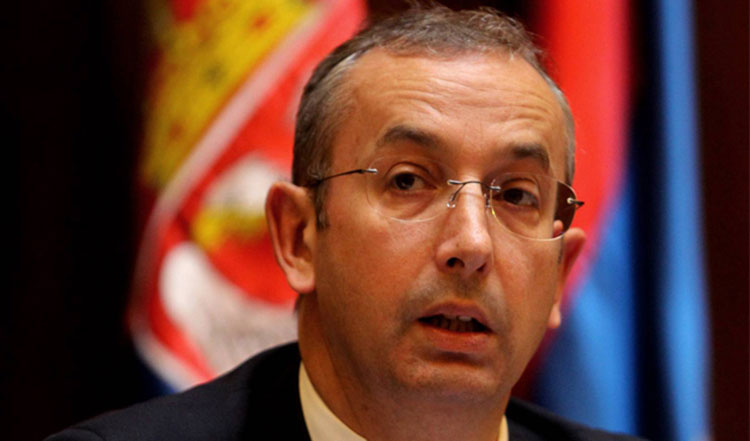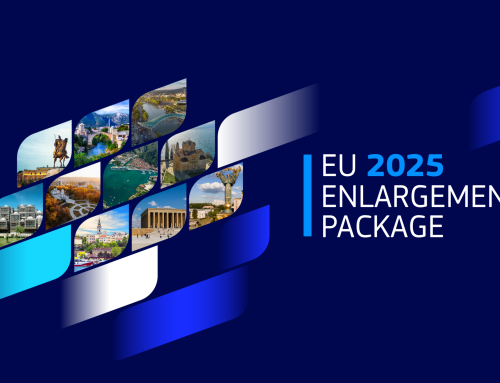Head of the EU Delegation to Serbia said it was up to Serbian MPs to invite him once again to the National Assembly to present the 2016 European Commission Report, adding that he stood ready to exchange views with MPs once the conditions for a discussion were in place.
“It is up to members of the Serbian Assembly to invite me to present the Report. In the meantime, I will hold a series of meetings with representatives civil society not only in Belgrade, but also in Nis and Novi Sad,“ Davenport told N1 broadcaster in an interview.
“The Parliament has a crucial role in any democracy, especially in Serbia where it is engaged in the negotiating process and the process European integration and in charge, not only of legislation harmonisation, but also its implementation,” he said.
“I therefore welcome any opportunity to exchange views, but this time the conditions for a discussion were not in place,” Davenport reiterated.
Speaking about the last week’s incident at the National Assembly, when certain opposition MPs prevented him from presenting the Report, Head of the EU Delegation in Belgrade said that during his six years in Serbia, he had his “fair share of surprises.”
Commission’s Report, he said, showed that “Serbia was moving forward”. The progress, he added, was underpinned with the fact that Serbia opened four negotiating chapters.
“In August, Prime Minister Aleksandar Vucic clearly stated in his exposé that EU membership was Serbia’s number one strategic goal. We are here to help and we are doing so through recommendations published in the Report which in fact is a supportive tool,” Davenport explained. He said that the Delegation had good relations with Serbian Government and stressed that the Report did not refer only to the Government, but to the entire society.
Speaking about the negotiation process, he said the European Commission made a recommendation to open chapter 5 dealing with public procurement, which is very important for combating corruption.
“It is now up to Serbia to present its negotiating position to the EU. I heard that Serbian Government will do so in the coming period,” Davenport said.
According to him, although the chapter dealing with foreign policy has not been opened, the EU took a clear position on this matter – all candidate countries must align their foreign policy with the EU.
“Foreign policy has to be fully aligned at the moment of accession. Serbia is entitled to its own foreign policy and it is natural that Serbia wants to intensify its relations with Russia and China, but it would be wise not to do so in a way that undermines its EU path,” Davenport said.
More work on the independence of judiciary, cooperation with civil society, implementation of recommendations made by independent bodies and media freedom
According to Ambassador Davenport, the Report indicates that Serbia is clearly moving forward but more needs to be done when it comes to independence of judiciary, better cooperation with civil society, implementation of recommendations made by independent bodies such as the Ombudsman and media freedom.
Asked to comment on the case of demolitions in Savamala, Davenport said the Report did not deal with individual cases, adding that developments regarding this matter were being monitored.
“The Report noted, and we have repeatedly said so, that recommendations made by independent bodies should be implemented, including Ombudsman’s. Now it is up to competent authorities, primarily the Prosecutor’s Office, to make the next move,” Davenport said.
Davenport said that the adoption new Law on the Anti-Corruption Agency was at the top of agenda.
“We have invested a lot of effort and money in this endeavour. Experts from across the globe have participated in the drafting of this Law,” Davenport said and added that he expected the Law not only to be adopted but implemented as well.
“Also, it is necessary to adopt new law on personal data protection and free access to information of public importance,” EU Ambassador said.
Speaking about the media, Davenport said that good legal frameworks were in place but that more work needs to be done on their implementation.
“When it comes to media freedom, it is essential for the process of project financing to be transparent. We are only beginning to implement this legislation, the privatisation process has yet to be completed, we are facing the issue of Tanjug with unclear legal situation. We are witnessing physical and verbal attacks on journalists, which is unacceptable. Conditions must be put in place for freedom of expression and media – this is an important recommendation we have once again made,” Davenport said.
Agreement on telecoms incentive to Association of Serb Municipalities
Davenport said he supported the agreement Belgrade and Pristina had reached on telecommunications because such an arrangement was in the interest of all citizens and added that it would serve as an incentive to progress on other elements of the Dialogue such as energy and the Association/Community of Serb Municipalities.
He said that the negotiating framework defined a comprehensive normalisation of relations, but that chapter 35, dealing with Belgrade-Pristina relations, did not imply recognition of Kosovo.
“We welcome the progress made within the talks and the agreement on telecommunications. It is a difficult topic and I hope that it will stimulate progress in other elements of the Dialogue – the establishment of Association/Community of Serb Municipalities and energy,” Davenport said.




